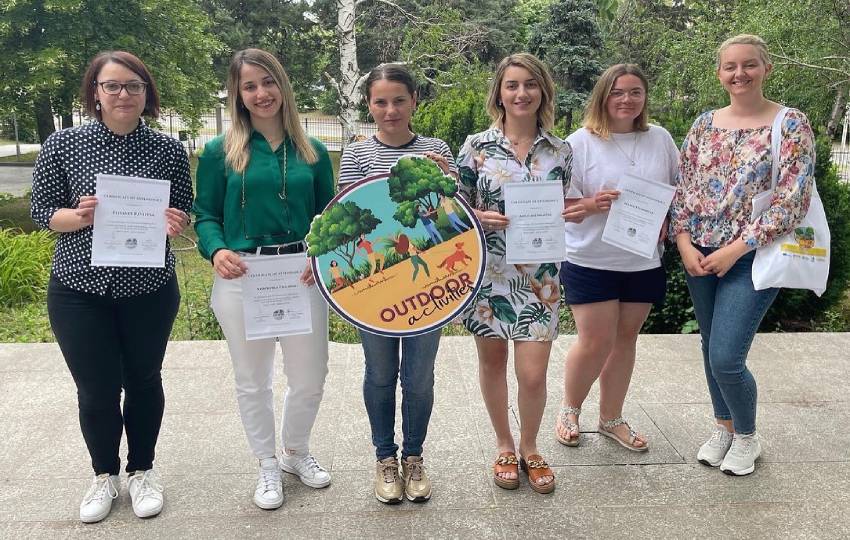Between May 26th and 22nd, the Outdoor Activities consortium materialized the outdoor training activities in Shtip, North Macedonia. The training was addressed to young people and the theme involved outdoor activities and storytelling in natural context.
The consequences of the pandemic affected sports fields in all its spectrum, from established sports events to sport-wise occupations etc. However, the advantages of physical activities in natural environments are known in people’s health. Moreover, collective outdoor activities have an impact on social cohesion and connectedness at large.
The structure of the outdoor training activities
Outdoor Activities is an Erasmus+ project that focuses on the benefits of outdoor physical activities in people’s physical and mental health, among others. In particular, the consortium aims to promote outdoor learning and education; and, at the same time, reinforce the activities of teaching staff in this frame.
In this context, the 5-day training occurred in North Macedonia with the participation of 12 people in outdoor learning activities. Furthermore, there were 4 more participants from Greece, who joined the training digitally.
The outdoor mentor’s journey of the participants occurred through various games and exercises. The training programs occurred outdoors at the premises of the Campus 2 of Goce Delcev University; in Shtip, Isar, and “Brioni” park.
Day 1
The day began with an introduction among participants and project coordinators, though creative ways. Consequently, participants engaged in a treasure hunt within the training location. Furthermore, Equinox scout group escorted training participants in a hike the Isar hill, where they engaged in reflection activities, among others.
Day 2
In day 2, multiple outdoor activities took place with professor Biljana Popeska and project researcher from YOB. Among the activities were to
Find outdoor movement spaces and harmonize body movements to these spaces. Subsequently, participants discovered how team outdoor activities contribute to social cohesion and connection. The day ended with the following activities:
- Mindfulness brain breaks and reflection activity, led by Biljana Popeska.
- Moreover, participants gave their feedback on their experience by filling the feedback matrix.
- And, physical activity games in nature from the project handbook.
Day 3
The day started with physical exercises and solo reflection games. Consequently, participants visited Skopje where they had the opportunity to visit different outdoor locations. such as: the central park; and, the Vardar running path. The day concluded with more visits in cultural monuments of the capital.
Day 4
The day before last was dedicated to storytelling games in nature with walking; working; and, playing. In this frame, participants created stories that reflect their experiences. Nature helped participants to explore ecological systems and creatively engage with world matters. In essence, games aimed at stimulating participants’ imagination, as an exploration tool of their role in the world. Specifically, participants explored:
- Mythological archetypes.
- Through storytelling activities, they brought landscape to life.
- The development of original dramas.
- Theatrical skits, where they developed their communication and performance skills.
Day 5
The outdoor training activities concluded with the following activities:
- 30 days journey app, that encompasses outdoor activities for social inclusion and the traditional outdoor games.
- The project assistant Pane Stefanov introduced participants to the Macedonian traditional game, along with individual physical activities.
- Participants had a picnic in nature and solo reflection time to connect with nature.
- Furthermore, participants tested the 30-day challenge app and gave their feedback.
- Finally, a reflection activity occurred, along with a certificate ceremony and preparation for the upcoming training in Germany.

The learning methods employed
To achieve impactful results, the consortium deployed the following learning methods:
- Lifelong activity and learning.
- Differences’ appreciation and value.
- Sense of place and community.
- Care for the worldwide environment.
Visit the official website of Outdoor Activities to find out more about the project and its learning methods.

